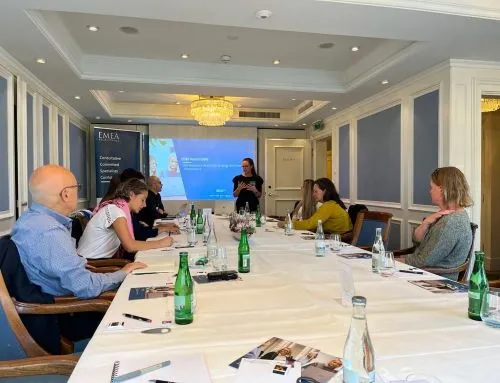
ED&I in the Employee Lifecycle
Keely Straw, Manager of Human Resources, shares knowledge on how you could improve your employee lifecycle, and her experience hosting EMEA Recruitment’s first face-to-face ED&I Roundtable event...
In my Q3 2022 newsletter, I shared insights on the future of work and what that means for Equity, Diversity & Inclusion (ED&I).
By making small changes throughout the employee lifecycle to accommodate a diverse workforce, organisations can improve employee experiences and boost engagement at every stage of the employee lifecycle:
1. Attraction - Brand reputation improves from employee, customer and stakeholder perspectives
2. Recruitment – Providing inclusive candidate journeys creates equal opportunities and allows organisations to draw from a wider talent pool
3. Onboarding – Demonstrating inclusive practices sets a first impression that encourages trust and loyalty
4. Development - Productivity improves, because data shows that employees with disabilities take less time off and stay with companies for longer
5. Retention – Turnover rates drop when everyone feels included and valued
6. Offboarding – Gathering employee feedback helps provide data and insights that can be used to improve ED&I policies further
Through my ED&I and HR networks, I have heard that many companies are already doing this and leading the way to make positive changes; they are eager to create a culture that is inclusive for everyone, regardless. Others are only just starting this journey.
While there is plenty of information available online, at virtual online events and shared across social media, there isn’t anything local to Switzerland for ED&I leads to come together to share topics and success stories.
That is why, this month, I hosted EMEA Recruitment’s first face-to-face ED&I Roundtable event in Zurich.
This was an opportunity for ED&I leads - from multiple industry sectors and size - to come together, share insights on ED&I strategies and how to implement one, as well as other topics.
I would be keen to understand if you would be interested in future roundtable events, either dedicated to ED&I or broader HR topics. In addition, I would welcome the opportunity to hear how diverse your employee lifecycle is and how this compares with the general market consensus.
Please feel free to contact me directly to see how we can support you: [email protected]

The Last Thing that made you Smile | World Smile Day 2022
To celebrate World Smile Day 2022, we’re sharing the heart-warming responses to the question, “what was the last thing that made you smile?” on the EMEA Recruitment podcast.
The podcast is produced in partnership with Operation Smile, an international medical charity that provides life-changing surgery and support to children and adults with cleft lip and palate.
It’s a cause close to our Founder, Paul Toms’ heart, as he was born with a cleft lip and palate himself. When interviewing guests on the EMEA Recruitment podcast, Paul asks them to explain the last thing that made them smile.
You can listen to some of the answers from our guests below:
Thank you to Dorie Clark, Markus Graf, Francesca Gino and Marco Aspesi, for sharing such lovely stories! Be sure to check out their full episodes: https://www.emearecruitment.com/podcasts
Throughout our partnership, we’re hoping to create 100 new smiles. It costs just €180/182CHF/£150 and takes as little as 45 minutes to provide cleft surgery on an Operation Smile medical mission.
If you can donate anything to help us reach our goal, please visit: https://www.operationsmile.org.uk/donate-to-operation-smile/donate-to-operation-smile-emea-recruitment/
Recently, we also welcomed Operation Smile UK’s new Executive Director, Mairead O’Callaghan, onto the EMEA Recruitment podcast to discuss her 11 years with the charity.
She also explained the charity’s goals for the next decade, as it celebrates its 40th anniversary in 2022.
Find the episode on your podcast app or watch on YouTube below:
Paul explains his connection to Operation Smile: “I can’t compare the challenges I faced with those of the young children Operation Smile help. All I can say is that, from my experience over the years, I changed from being afraid my uniqueness would define me, to embracing the fact that it defined me.”
Operation Smile is the official partner of the EMEA Recruitment podcast. If you’d like to find out more about our partnership, visit: https://www.emearecruitment.com/operation-smile
Operation Smile United Kingdom is incorporated as a company limited by guarantee in the UK (No.04317039) and is a registered charity in England and Wales (No. 1091316).

Q4 2022: Finance Recruitment Market Update - Switzerland
As we begin the final quarter of 2022, one thing is for certain: the rate of change and challenge has not decreased in the last three months, but the Finance recruitment market remains extremely strong, with high levels of competition for candidates.
Candidate market
The unemployment rate in Switzerland remains low, at 2% in August 2022 (source: State Secretariat for Economic Affairs). This is a sign of a positive and stable economy, but also a factor in why some Finance roles are proving difficult to fill, as most people who were displaced during the pandemic have secured positions.
Highlighting a key shortage – Accountant and Controller level
Many companies have reported greater difficulties when recruiting for roles such as Accountant or Controller. One of the key reasons for the candidate shortage at these specific levels has been the move to remote shared service centres, which has reduced the flow of people entering the Finance & Accountancy profession in Switzerland.
The impacts on recruitment are:
For recruiters:
- Traditional recruitment methods are not delivering success
- Individuals who began their careers in 2020 have only ever known hybrid working, so this is a key factor in their decision-making
- Employer brand and a relevant benefits package is extremely important
- Recruitment processes are often not matched to the desired audience
- Roles requiring languages in addition to English are significantly more difficult to fill
For job-seekers:
- High demand means greater choice of opportunities
- Rising salaries
- Changing job can be achieved quickly
- Benefits and working conditions may be open to negotiation
- Counter offers are being offered more regularly by employers
Counter offers made to candidates to retain staff in this competitive market include: higher salaries, enhanced hybrid working arrangement or even fully remote working.
At EMEA Recruitment, we share market insights with our clients before developing tailored recruitment campaigns that generate interest from the desired audience and lead to successful appointments.
In the current climate, an increasing number of clients are choosing to work with us on a retained basis, to ensure they are at the forefront of the battle for talent.
If you require help to recruit, please get in touch and we will gladly share market information. Please reach out to Mark Robinson: [email protected].
If you are considering your own career path, there is no better time to speak to an expert and ensure that you have access to the right opportunities.
Hybrid working – how does it impact recruitment and onboarding?
Experienced Finance professionals have reported finding it harder to integrate into a new company, primarily because of the lack of time spent physically in the same location as their colleagues and peers. Many people at this level are happy to spend more time in the office, particularly during their learning curve.
Individuals who began their careers during COVID have only ever experienced hybrid working (initially more heavily home-based due to lockdowns), so are used to spending less time in the workplace.
When we are working with a business, we make sure that we fully understand the hybrid working requirements of both client and candidate from the outset, to ensure a smooth recruitment process with clear understanding on both sides, and work with both parties to achieve the right outcome.
Once employment commences, we maintain contact with both parties to help with the onboarding process and maximise the chances of a successful appointment.
Future impacts of hybrid working:
- Are hybrid policies consistent across existing and new employees?
- Is it as easy to identify good performance and potential for internal progression?
- Does hybrid working lead to less engagement and feeling of belonging at a company?
- Will average tenure in companies decrease if people are less bought in to their employer?
We will be running a series of LinkedIn polls to gain further insight into some of these topics. We hope that you will participate and enjoy reading the results in our next newsletter.
Summary
Having access to current market information, whether you are hiring or job seeking, is more important than ever before.
If you would like discuss your own career situtation or hiring into your team, we would be happy to speak with you: [email protected]
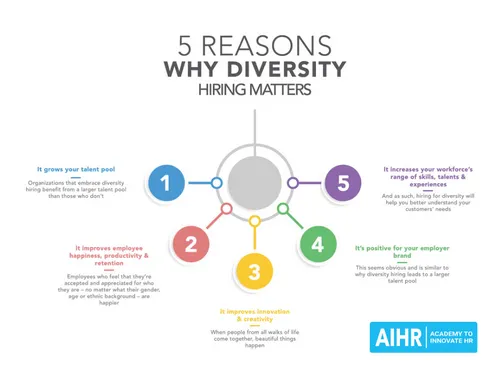
Are you Investing in a Diverse Workforce?
With DE&I on the agenda for both employers and employees, companies around the world are focusing on developing their diverse recruiting strategies, therefore, good practice of hiring candidates under a process that is bias free is paramount.
Diverse recruitment should be aimed on finding the best possible candidate, regardless of a person’s background, and with equal opportunity given. Having diverse teams can contribute to newer and more varied ideas, resulting in companies being more innovative, creative and, overall, achieving better results.
It's also important to note that diversity in the workplace is not solely focused on business results and performance, but equally on building teams from qualified candidates, irrespective of their age, gender, background, race, religion or sexual orientation - this is long overdue and a step towards true equality in the workplace.
Diverse recruitment has many tangible benefits for performance and productivity, such as a broader range of skillsets, increased language and cultural awareness, and a more varied candidate pool.
“Research from McKinsey & Company shows that the most diverse companies are also some of the most profitable: those in the top quartile for gender diversity on their executive teams were 21% more likely to experience above-average profitability than companies in the fourth quartile. As far as cultural diversity goes, companies in the top quartile were 33% more likely to have higher profitability than their less diverse counterparts.”
https://www.moonworkers.co.uk/blog/5-reasons-why-a-diverse-workforce-is-beneficial?gclid=Cj0KCQjwjvaYBhDlARIsAO8PkE31_jm8-HoPOUQGnEg7sHGlB8KR652Gys0JsIYi8l5k3aim2cxfaQYaAqc8EALw_wcB
When recruiting with a diverse strategy, it’s crucial to measure the metrics of your hiring process. Understanding what your company is aiming to achieve in its recruitment and appealing to a diverse demographic is an effective way to encourage a wide range of applications.
So, how can you encourage such applications?
Tips on diverse recruitment
- Audit your previous vacancies and make the necessary changes that will appear to a wider, more diverse audience - make sure the language used isn’t masculine, feminine or aimed towards a certain qualification level, seek to be more inclusive in the wording so as the vacancy can appeal to candidates with different backgrounds
- Source candidates from different platforms - LinkedIn is one of the best tools to use for sourcing, but do not rely on the same channel to find your diverse candidates, as simply using the same platform, time and time again, can result in a similar talent pool and potentially lack in diversity
- Ensure there are equal opportunities at screening - are the applications you receive anonymous? Are your pre-screening methods blind? Does your ATS system have the technology to flag or filter specific skills and experience? All the above will help you to remain free from bias throughout the recruitment selection process
- Boost your employer branding - displaying your employer brand that naturally values its people and opinions from all backgrounds can be appealing to diverse candidates
- Review your policies – company policies that appeal to a wide range of people demonstrate that diversity is valued and embraced as part of the company culture
Diversity recruitment is based on talent and merit, encompassed with ensuring measures are in place to reduce bias when selecting the right candidate. To ensure you have a strong diverse recruitment strategy, do take the above into consideration.
We have noted a significant increase in payroll vacancies, particularly within the manufacturing and company software development industry over the past three months. These larger, multi-national companies have found such roles more difficult to recruit for, thus turning to external support.
If you require recruitment support for your difficult HR roles, contact our international Associate Director, Katie Insley, on [email protected] or +31 20 241 73 66, who can discuss with you the services she has provided to previous clients and how she can support you with your recruitment needs.

The Future of Work and what this means for DE&I
As we move through another quarter, we have seen continued changes across HR. Again, HR leaders are left wondering how they can attract and retain top talent.
The Future of Work is the topic everyone is talking about, whether that be for more flexible/hybrid working models, or clear development and succession plans to attract more diverse and inclusive employees.
Organisations will face increased competition for talent; this will make hiring employees challenging and will push businesses to:
- Offer better salaries, bonuses and benefits packages
- Focus on retention and improving employee satisfaction and engagement
- Create new talent pools for critical roles
We will start to see organisation prioritize Diversity, Equity & Inclusion more than they ever have before. We see through our network that employees now expect to see demonstrable progress, rather than goals or promises. Organisations will need to be more transparent and accountable then reporting on DE&I.
A recent Glassdoor DE&I workplace survey identified that 76% of job seekers consider a diverse workforce important when evaluating companies and job offers.
Why being inclusive matters in the recruitment process
In today’s competitive marketplace, DE&I is a means of achieving positive cultural change, while also boosting brand reputation and becoming an employer of choice – all of which help when it comes to attraction, recruitment and retention.
Besides, at a time when so many organisations are reporting employee and skills shortages, tapping into a more diverse talent pool is a no-brainer.
“If you haven’t got the best talent, you’re not going to be the best, and if you’re not representing properly the available pool of talent, then you’re missing an opportunity.”
- Alex Wilmot-Sitwell, EMEA President at Bank of America
By improving processes to accommodate a diverse workforce, organisations can improve employee experiences and boost engagement at every stage of the employee lifecycle:
- Attraction - Brand reputation improves from employee, customer and stakeholder perspectives.
- Recruitment – Providing inclusive candidate journeys creates equal opportunities and allows organisations to draw from a wider talent pool.
- Onboarding – Demonstrating inclusive practices sets a first impression that encourages trust and loyalty from the off.
- Development - Productivity improves, because data shows that employees with disabilities take less time off and stay with companies for longer.
- Retention – Turnover rates drop when everyone feels included and valued.
- Offboarding – Gathering employee feedback helps provide data and insights that can be used to improve DE&I policies further.
We are keen to understand your thoughts and feedback around these topics and would welcome the opportunity to hear how diverse your employee lifecycle is and how this compares with the general market consensus.
For further discussion, please contact [email protected] to see how we can support you.

Attracting and Retaining Talent for Growth and Sustainability
What recruitment process should you look at implementing to ensure you are attracting and retaining the right candidates to help grow and sustain your business?
This question could not be more topical than it is today.
Candidates are seeking quality of life from their employment, no longer accepting the working conditions pre-2020; the “great resignation” is not a myth, but a fast-growing worldwide reality that is being fuelled by the choice available on the open market.
The continuous job vacancy growth over the past six years for the Netherlands market has been recorded across all sectors.
"The number of new vacancies subsequently rose by 400,000 to 1.4 million in 2021, reaching the highest level ever recorded. The increase was visible in all occupational classes. This is evident from new labour market figures which have been released by Statistics Netherlands (CBS)." Source: https://www.cbs.nl/en-gb/news/2022/23/more-new-vacancies-in-2021-for-all-occupations
Candidates in the Dutch market know they are in a strong position to demand a great work-life balance, choosing organisations demonstrating strong ethics and morals, inclusive directives, and clear corporate policies.
Many Netherlands based organisations offer attractive packages with education stipends and reduced hours to ensure they attract the best candidates on the market.
It is imperative for organisations to address these fundamentals, not only to attract the right level candidates, but to develop and retain your workforce to ensure growth and future success.
Do you consider your workforce your strongest asset?
Once you have addressed your internal structure to promote your organisation, you should also consider reviewing your hiring processes. Is it robust, efficient, or even fit for purpose?
Efficiency is key. Long recruitment/interview processes with multiple testing and difficult panel scenarios can hold a negative impact on your next generation workforce. It’s important to keep momentum of the interview process to ensure a successful outcome.
We hear from many candidates who have entered a difficult recruitment process and cited they have felt “stressed”, “under pressure”, “unable to deliver” and “de-valued”.
Competitors with quick, fluid decision-making processes are often the most successful in attracting and identifying the right level talent.
This hiring process is not just about an organisation considering the suitability of a candidate, but also the candidate considering the suitability of the organisation.
First impressions
Deliver an opportunity that is going to be well received; first impressions really do count:
- Write a job description that accurately reflects your hiring needs. Make it realistic and competitive, not only within the external market, but also with your internal structure.
- Highlight and promote your organisation’s internal policies.
- Define a robust recruitment process, which covers the process from application/interview to offer within a succinct timeframe.
- Provide clear feedback to all engaged with the process, even those you don’t wish to offer; negative feedback can impact the reputation of your organisation for future hiring.
- Make the hiring process enjoyable for all parties.
Growing your reputation in the market will enhance your credibility and attractiveness to invite and retain the future generation workforce you are seeking.
For more support and guidance in streamlining your hiring process, EMEA Recruitment can provide advice on delivering a robust process. If you are interested in finding out more or have any further questions please reach out to David Harper.

EMEA podcasts
The EMEA Recruitment podcast welcomes guests from across our network and beyond to share their career journeys, advice, and inspirational stories.

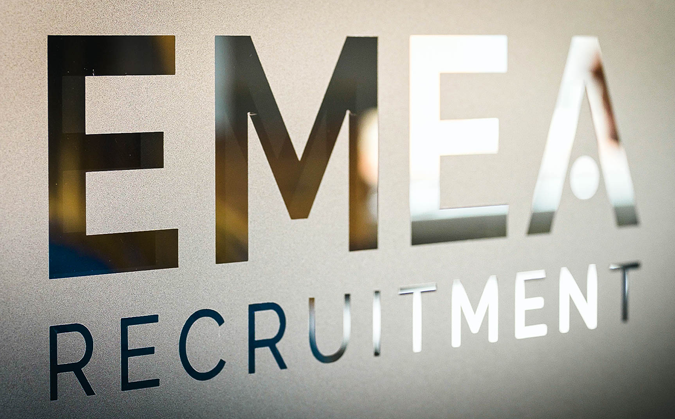
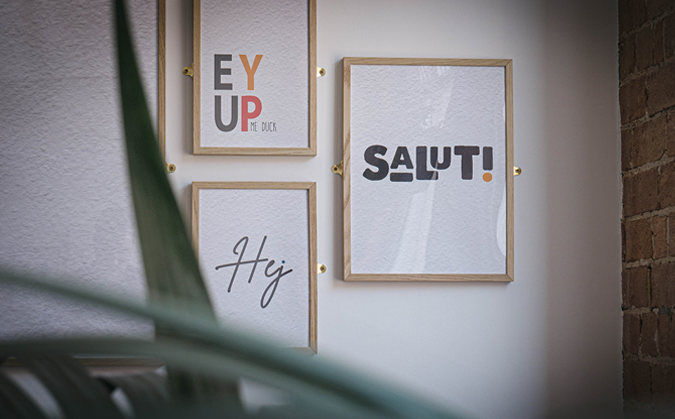


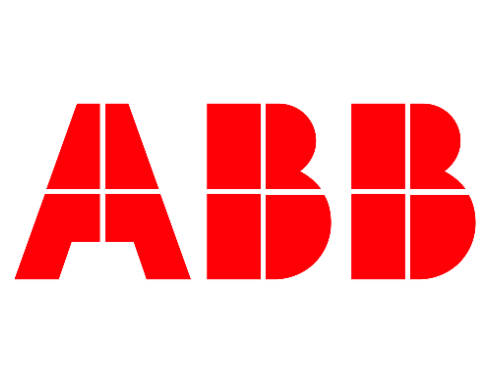


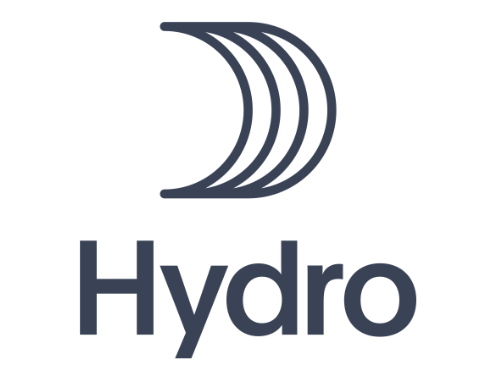

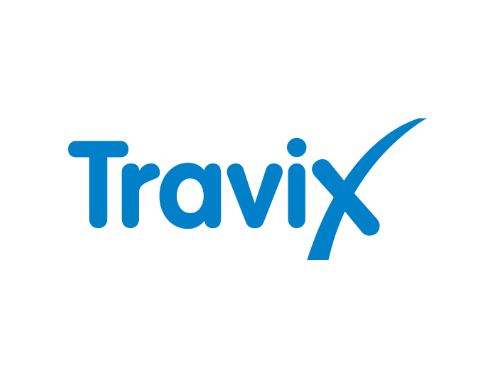

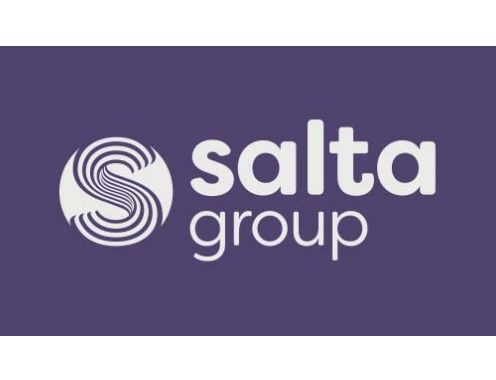

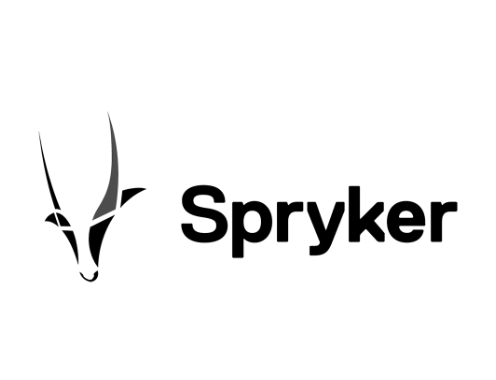

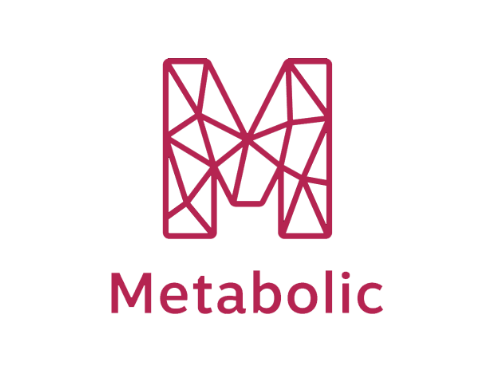

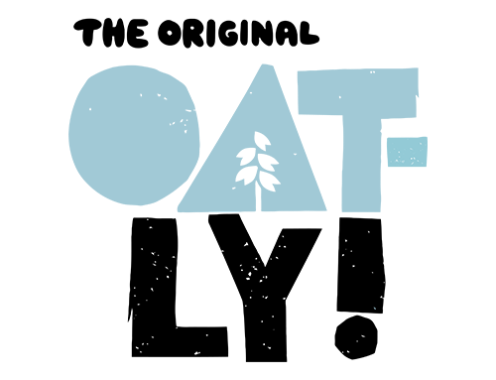


You can also use your social account to sign in. First you need to:
Accept Terms & Conditions And Privacy Policy